An Acupuncture Volunteer in Guatemala
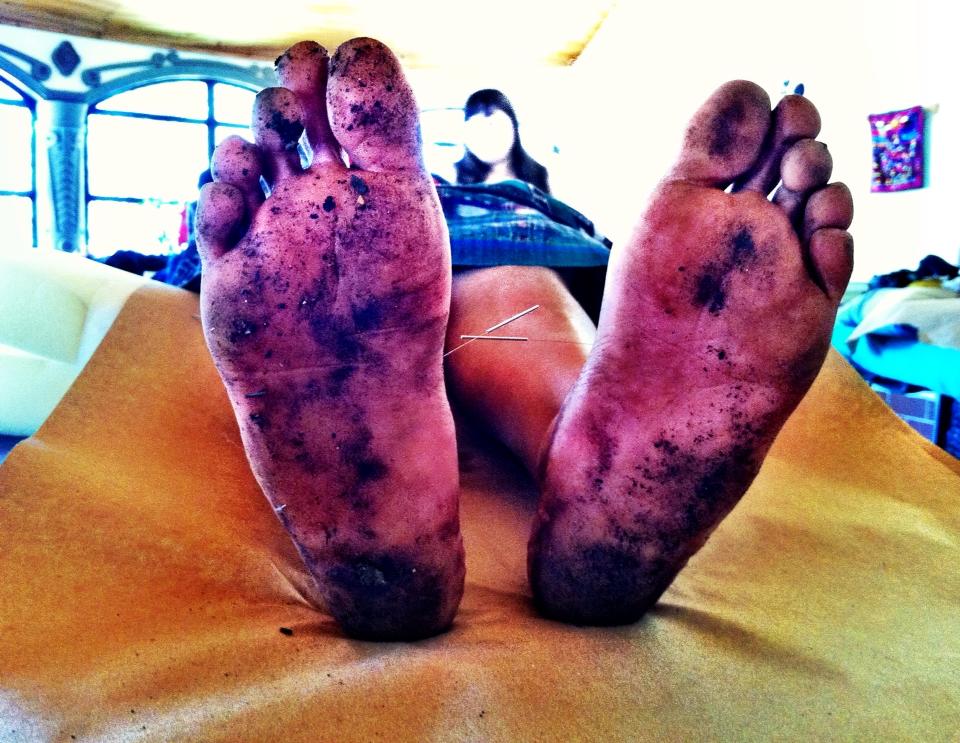
I had been instructed to mark “Tourist” on my customs form, and to say that everything in my suitcase was for “personal use.” “Don’t worry,” I was told, “we’ve never had problems getting our supplies through customs.” Another friend’s mother echoed that by saying she never had her bags checked although she regularly brought in supplies via the Rotary Club. My entire suitcase was filled with Chinese herbal medicines, supplements, acupuncture needles, a sphygmometer, an otoscope. I was literally bringing the clinic to Guatemala, where I would be working as a volunteer acupuncturist in a small village. In fact, we were all bringing the clinic to Guatemala—in our suitcases, carry-on’s and purses. We were a group of 15 volunteers, a collection of licensed acupuncturists, acupuncture students, a chiropractor, yoga instructor and other healers on a volunteer mission through The Global Clinic.
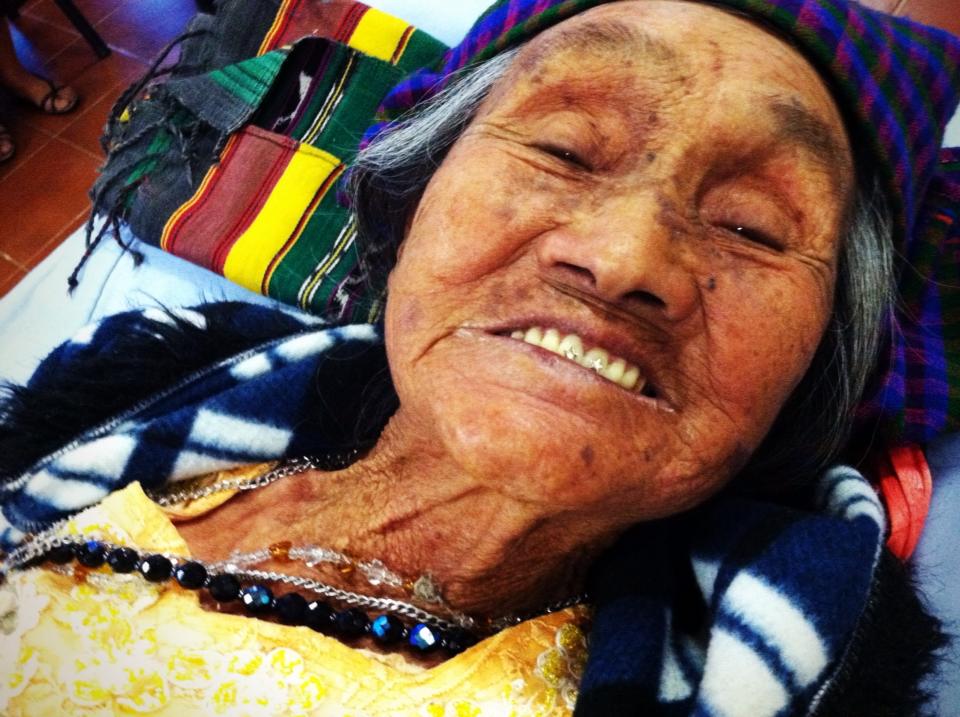
“Don’t worry, we’ve never been hassled in customs,” these words were on my mind as we cleared immigration, and were sent to the customs area. As my suitcase went though the scanner the agent asked me, “Do you have supplements in your suitcase?”
I looked surprised—genuinely—I thought this was going to be a walk-through! Not apparently. So I continued to look surprised and confessed, “Some…I have some supplements.”
The agent said he would have to open my bags. The vast array of pills, bottles, and needles which had been neatly organized before the flight, now oozed and spilled out with relief. Even the latex gloves came sliding out with glee. “Wow,” I said, doing a terrible job of feigning shock. Then I bit my lip. He was silent.
“Where are you going?” he asked.
“The Barbara Ford Peacebuiliding Center, in Quiche,” I said.
“Hmm.”
He stared at me and I stared at my suitcase. He said he would let me go this time, but delivered it with such pauses between each word to let me know that he knew that I knew that he knew. Then we were allowed to enter Guatemala.
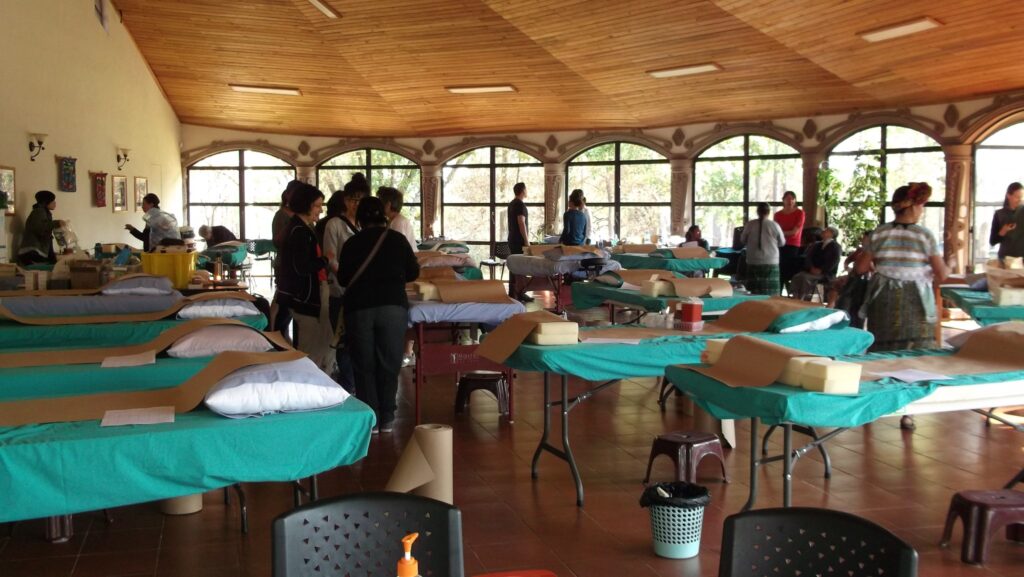
We met the other volunteers and crammed into a minibus that would take us 3 ½ hours to the village of Santa Cruz del Quiche—to The Barbara Ford Peacebuilding Center, the location of our acupuncture camp. We arrived dusty, hot, and sleep-deprived, but the adrenaline of being around each other and in this village inspired us to immediately transform the conference center into our acupuncture clinic for the week. Never before have I been so excited about butcher paper on makeshift treatment tables; or the sight of foam sheets cut to size and taped together as pillows, or the mattress laid on the floor for pediatric patients. We were also given mini trays to hold supplies so we could move easily and quickly from bed to bed. Patients would arrive the following morning at 8:00am sharp! And we would work for 12-13 hours a day.
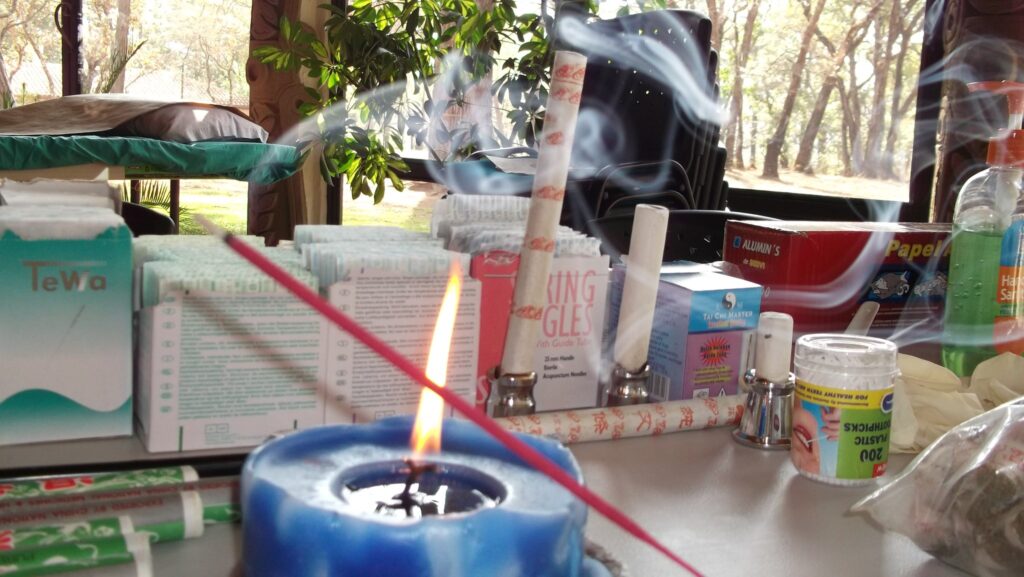
We had a pharmacy generously stocked with herbs, vitamins and supplements—all donated. The challenge with small nonprofits dependent on shifting crews of volunteers is stability and infrastructure. Systems. Flow. Organization. The attention to detail it takes to keeps things running dictates not only the success of the current mission, but the viability of future missions. In our case it was Diane C. who was a database-dream. Every day we prescribed hundreds of herbs and supplements. It was Diane C. who conducted inventory continuously and provided fresh hand-outs on updated numbers—literally—running spreadsheets to us several times a day! So I knew when we had run out of Du Huo Ji Sheng Tang and would need to prescribe an alternate formula for back pain.
We also had a floor general in Marc, whose job it was to attend to the acupuncturists, to the flow of patients going through triage, and to manage traffic jams. He was our go-to-guy with anything that happened on the floor—Marc, where’s the e-stim machine? Marc, I ran out of cotton balls. Marc, can I get a sticker for my pediatric patient? He made sure we got our breaks and staggered our lunches. He even reminded me to get in on the fresh hot cake that had arrived as the mid-morning snack!
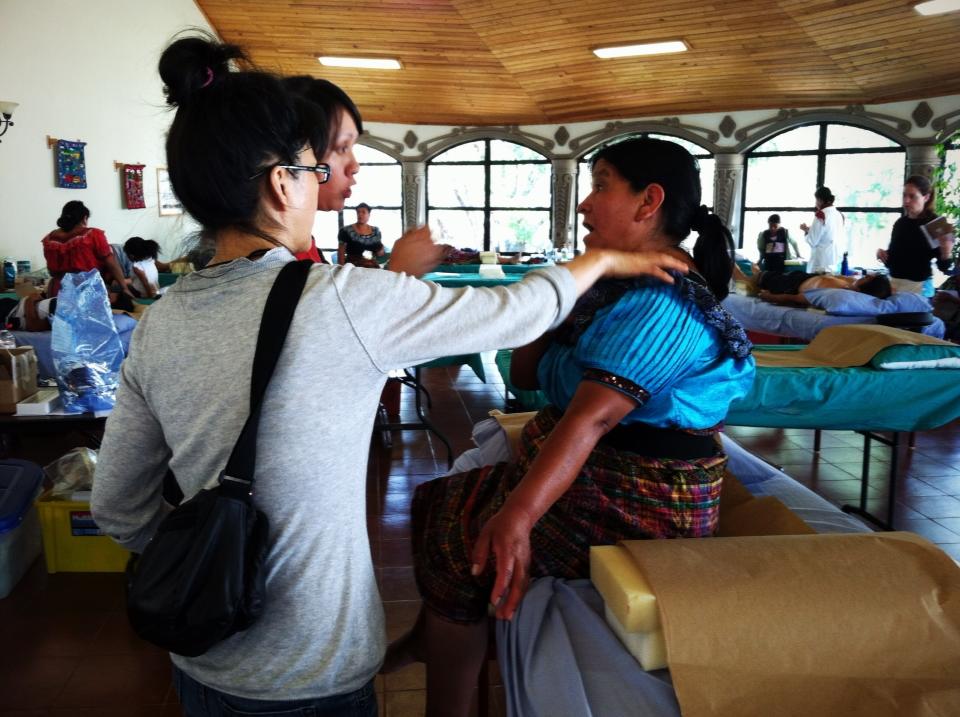
There were several translators assigned to help us in the treatment room, and we really had them on their toes! These local village women would help me interview a patient until I felt confident enough to diagnose and create a treatment plan. Then they would sprint to the next acupuncturist who was waiting for her help. Each acupuncturist was also assigned one or two student interns, so while I interacted with the translator and the patient, I was also conscious of being in a teaching role. If I was pressed for time, I needled first, then explained my rationale. However, whenever possible, I strove to work with them, to get their input, and together we discussed diagnoses and treatment protocols. Often I had to criss-cross the room in search for the e-stim machine and I would pass children lying next to eachother on the mattress in the “pediatric department”; I would pass Trish performing a chakra balancing, or Marianne’s amazing facial acupuncture treatment.
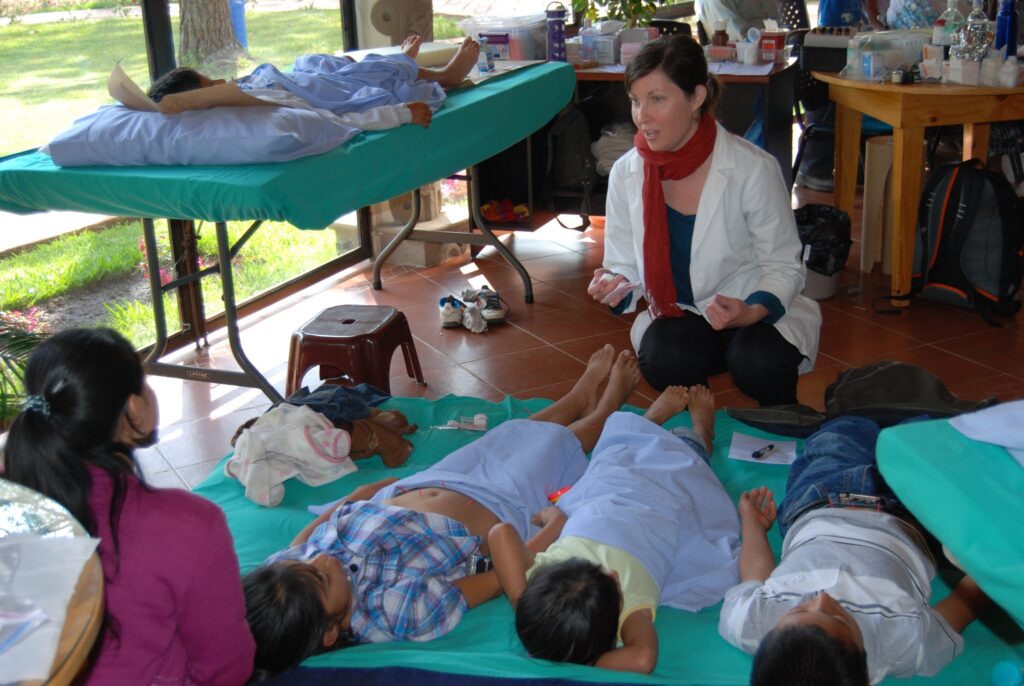
One morning as a group of villagers entered our clinic in single file line, the enormity of everything hit me. The donations, Diane doing inventory, the acupuncturists prepping their stations or working with translators to interview patients, seeing everyone treating and taking care of each other…we take care of each other. We don’t do it alone. We aren’t meant to do it alone. Even my colleague Amy and I received such an outpouring of support and donations prior to coming to Guatemala and now we were here, and I felt myself taken in, taken care of.
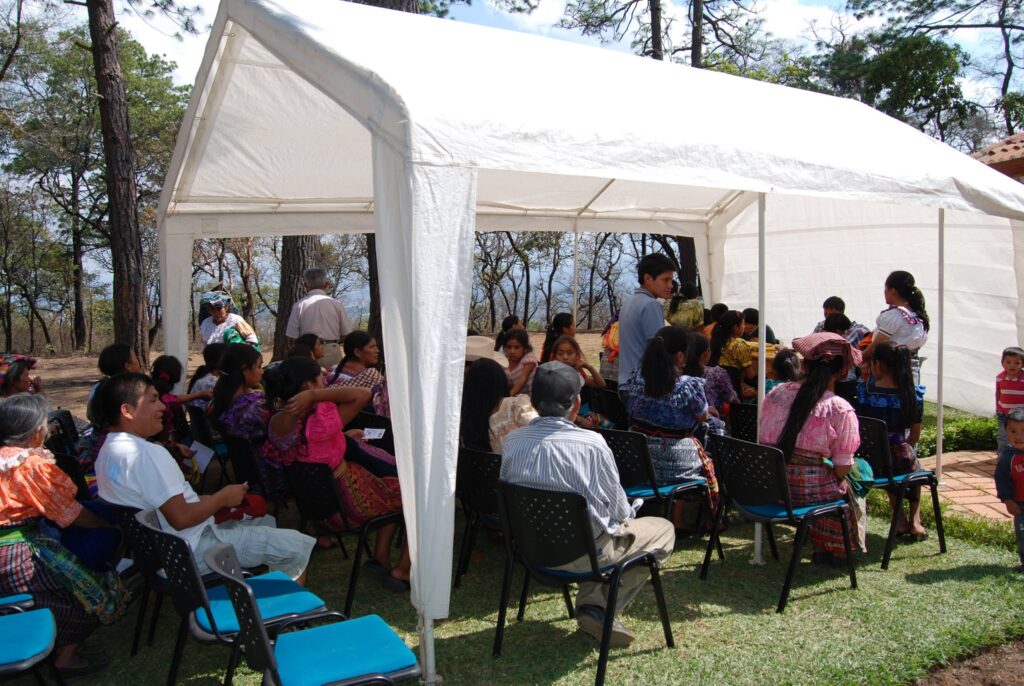
It was a rash decision to come to Guatemala. I had recently returned from a month of following Chinese medicine doctors on rounds in Guangzhou, and a two-month solo volunteer service on the Thai-Burmese border. Yet I found myself signing up and submitting an application. When Amy decided to join, we held fundraisers; community-acupuncture fundraisers, and hosted a party featuring musicians and writers. I put up flyers all around town, made artwork to sell, and booked venues for our events. It was grueling, gratifying, and humbling. People we never met, who we never thought would support us, supported us. La Boulange said they would give us some left-overs. I thought they’d give us two loaves of bread. Instead they cleaned out their cases and gave us boxes of beautiful French breads and pastries.
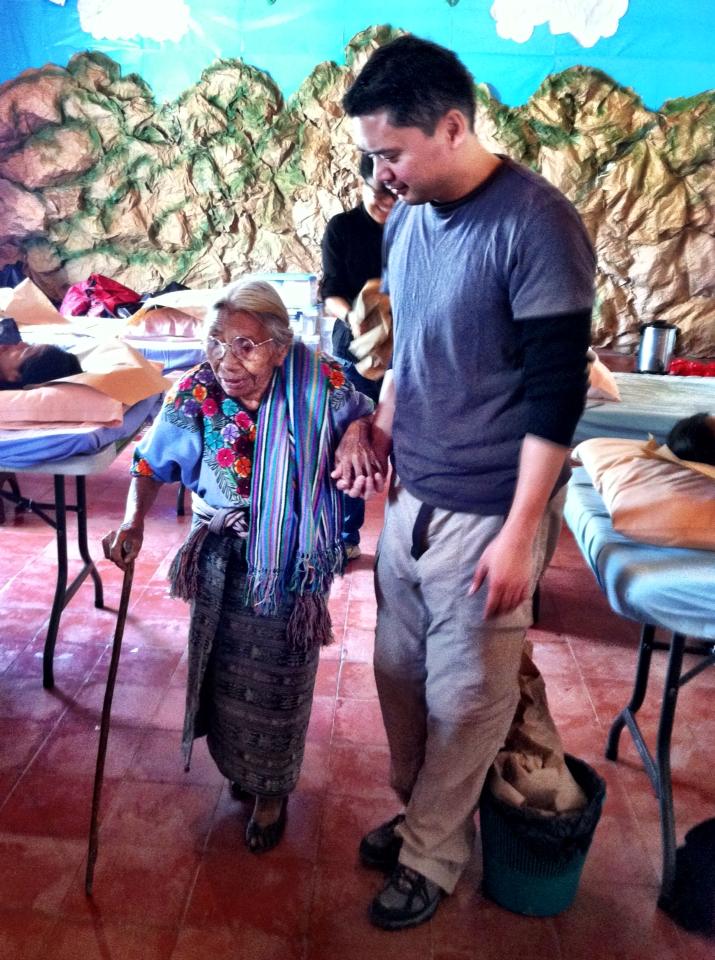
I learned to interpret their responses. Through my translator, a patient told me she had chest pain and difficulty breathing. I asked her if it was difficult to breathe when she walked or went up the stairs? She said, “No, it’s hard to breathe when I think of my son,” and tears rolled down her face. I did not speak their language but we communicated intimately. I put my hands on them, I palpated their abdomens, I looked at their tongues, peered into their eyes, and in return, they were vulnerable and genuine. They were teaching me about them, and what they needed. This particular village, Santa Cruz del Quiche, reported the highest number of mass murders during the civil war, and memories of abuse, violence and struggle were visible in their voices and in their bodies. Sometimes it seemed an impossible task; how can these people, witness to levels of violence I most likely will never see—lie down on a table and tell me—a foreigner—about what ails them? In one way it felt too trite, too simplified, too obtuse. But by addressing their shoulder pain, their annoying cough, their upset stomachs, they started to relax. They softened, they sighed. I encouraged them to close their eyes—Take a rest, this is your time. Everyone, when they sleep, are like babies.
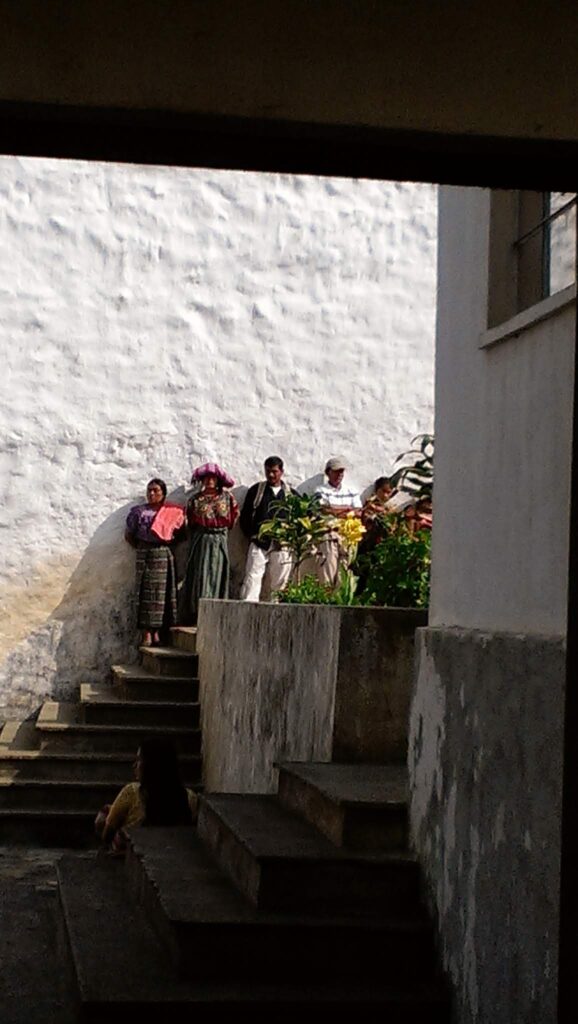
We had a 3:30am wake up call. We were to perform acupuncture at another make-shift clinic three hours away in Coetzal. The night before, we had packed up our supplies into plastic bins, packed up the guasha station, the moxabustion station, brought extra sharps containers, folded up long conference tables that would be converted into treatment tables. These were loaded into a separate minibus as we caravanned in the black-night-morning, driving slowly along single lane paths, passing villages that were still asleep with windows and shutters firmly closed. We arrived in a very pretty courtyard where villagers were already lined up and waiting for us. We had another set of translators who would be assisting in the local Ixil dialect. I noticed one translator working alongside us with her infant tied to her back.

The patients were led in and we got right to work addressing chief complaints: difficulty sleeping, insomnia, chronic cough due to cooking over flames all day. Numerous reports of repetitive stress pain from making tortillas; whole body pain from carrying bundles of wood up Guatemala’s steep mountainsides. It was extremely busy, going from one patient to the next, to the next. Marc reminded us to stay hydrated and pointed to water bottles. I had one mother-son patient duo—they each had fevers. I treated the mother first, then took the boy—by looks five years old—by the hand and led him to a treatment area outside. There I performed a Chinese medicine technique to prick the index finger to express a drop of blood. This quickly reduces “heat in the channel.” The boy did not like it and immediately started to cry. I produced a lollipop and put stickers on his wrists. Duly mollified, I led him back to his mother. He got onto the treatment table with her and promptly fell asleep. By the time they left, the boy was brighter and no longer lethargic.
The organizer of our trip, Joan, was not as lucky. She also treated a child running a fever. This child sneezed right into Joan’s face with spittle landing in her eye. Joan would suffer flu-like symptoms for the remainder of our mission and no—stickers did not mollify her.
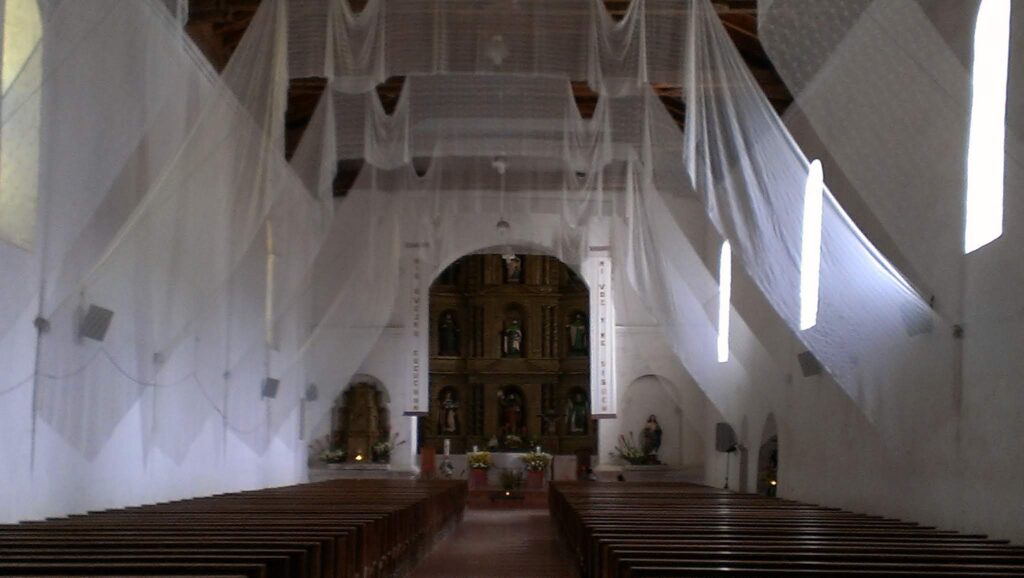
We got back late at night. We had been delayed getting back due to a fatal motorcycle accident on a single-lane road that tied up traffic for over two hours. Seated in the van with no street lights, we were literally in the dark. As far as I could see—a snake-line of cars ahead of and behind us. It had been hours since departing Coetzal and I really had to pee. Inquiring at a nearby home, they refused to let me use their toilet, but gestured to the area around their house. Thus, in a stranger’s yard and at the scene of a fatal accident, I dropped trou.
At the Center, they had supper waiting for us and most of us fell asleep immediately afterwards. We were pulling long hours, with days beginning and ending with inventory control. It was right at this point that Sister Ginny came and spoke to us, letting us know how much the villagers appreciated our work and how it helped them. She spoke of the history of the civil war and the emotional scars on the people, and her own endeavor to empower the locals by educating them and hiring them. For our part, we trained the locals in NADA ear acupuncture and auxiliary treatments with the aim that they can continue providing treatments without us. We do not create dependency, rather we open the space for collaboration, creativity and independence.
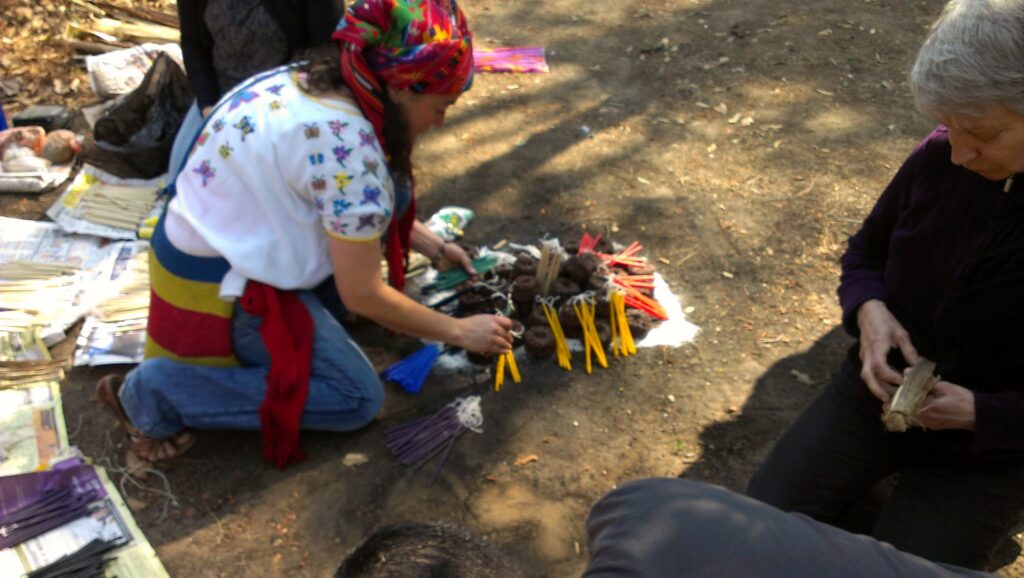
Our last day was suddenly upon us. At 8:00am we hiked with supplies to a sacred spot. A fire ceremony would be conducted, for which we were the guests of honor. A Mayan ritual filled with symbolism and significance, imbued with the raw elements of earth, air, water and fire. A bird landed on a branch nearby and squawked as if to confirm our place there. For those of who went deep, it was three hours of meditation. Flor, the Mayan priestess, blew smoke on us, and when we hugged one another, it was as if we were somehow pressing in the ceremony, pressing in the villagers’ appreciation, pressing in their journey which was now our journey. It’s hard to describe but when I stood up I felt ancient. As I hugged Marc he said, “Here’s to more of these,” and without hesitation I said, “Yes, more of these.”

Muchas gracias—a heartfelt *Thank You* to my colleagues and fellow volunteers, to Joan for her leadership and compassion, to Sister Ginny and the staff of the Barbara Ford Peacebuilding Center, to the translators, the cooks, the villagers, our driver Federico.
Thank You to all of our friends and families who supported us financially and in-kind to assist me and Amy to come to Guatemala. We literally came on the wings of your support and we did do Wonderful Things!
Leave a Reply